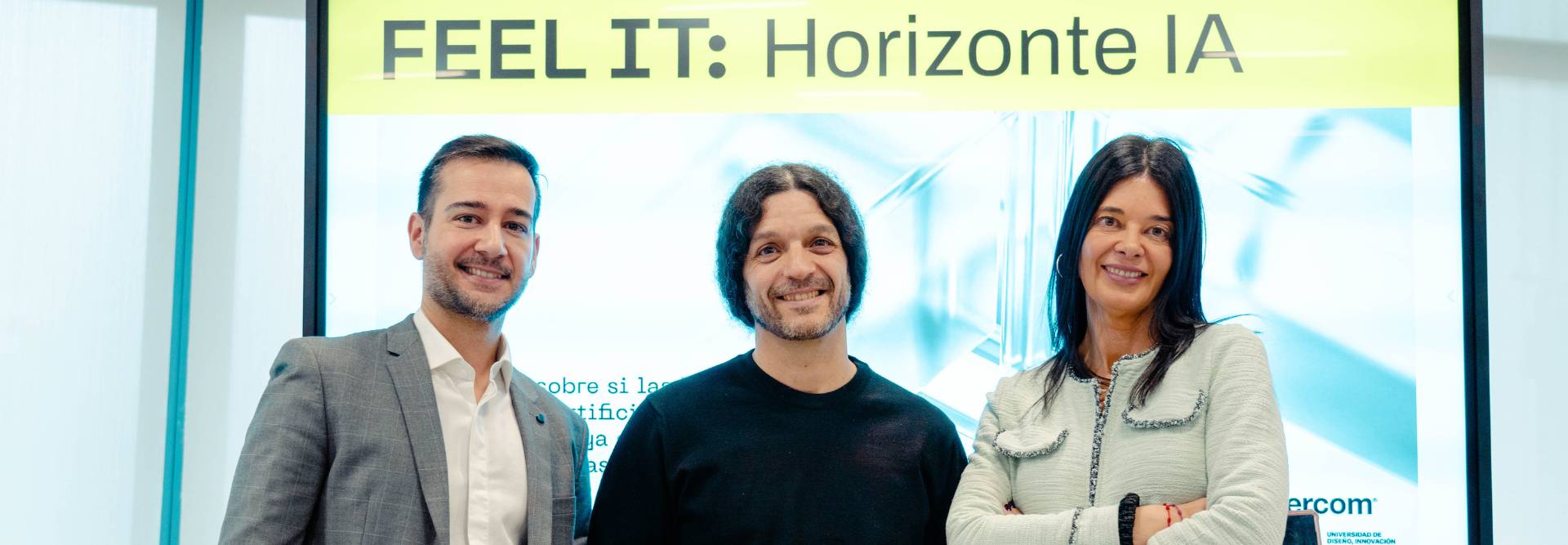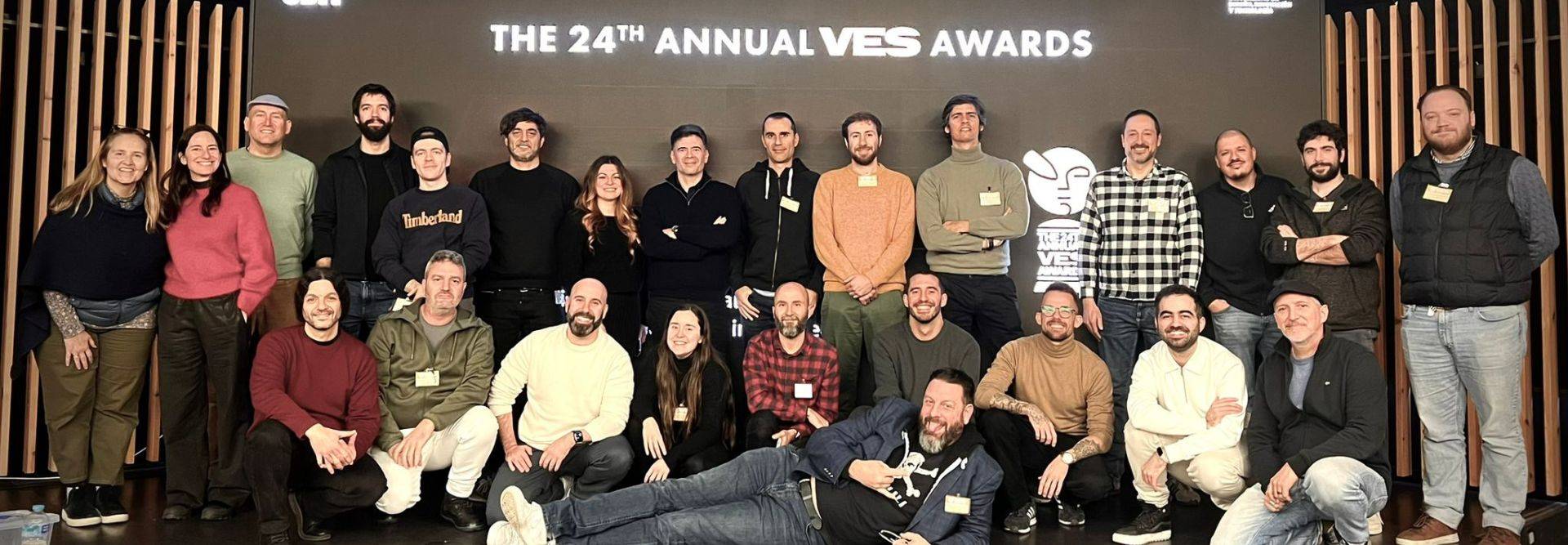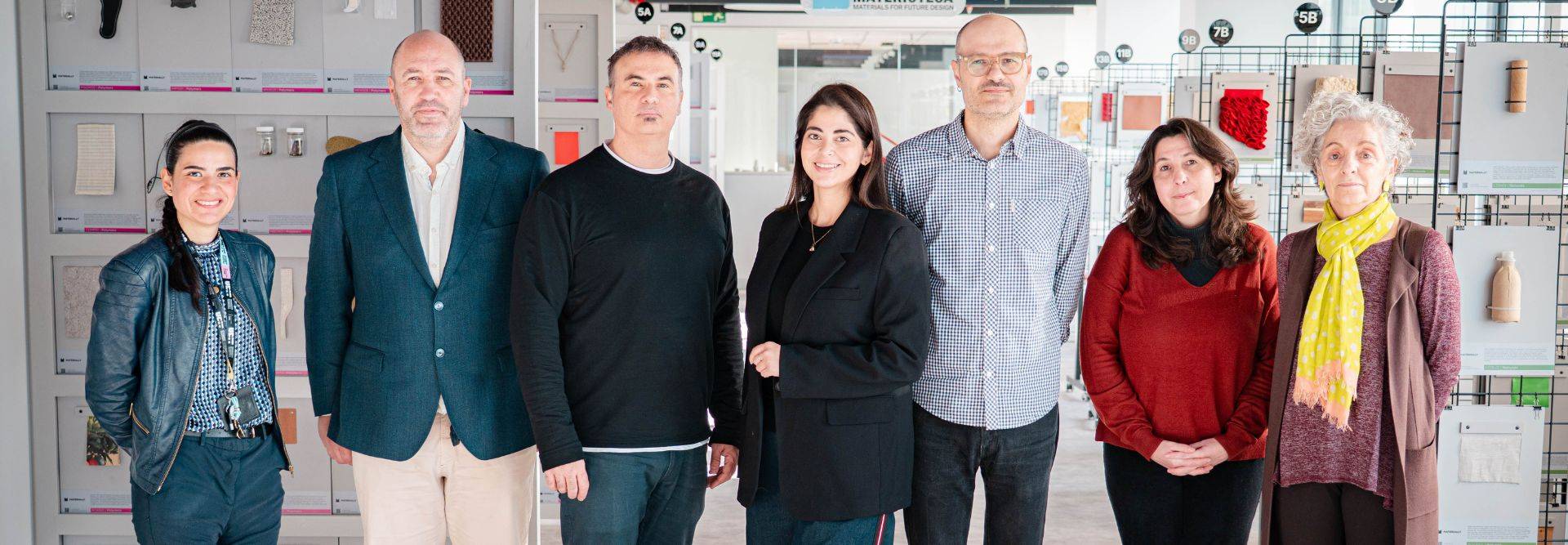90% of Spanish companies already use AI tools and 29.1% of Spaniards use AI on a daily basis, according to a study published by Evercom and UDIT.
- The study FEEL IT: Horizonte IA, prepared by evercom, a creative communications and marketing agency, in collaboration with UDIT (University of Design, Innovation and Technology), analyses the impact and integration of Artificial Intelligence among citizens and companies.
- 29.1% of Spaniards use AI on a daily basis and 54.4% do so occasionally. Moreover, 91.3% are actively curious about the evolution of these technologies.
- 40.6% of organisations have specialists in this area and 51% plan to incorporate them. 76% of companies will increase investment in AI in the coming year.
It seems unquestionable that to talk about Artificial Intelligence today is not to imagine a distant future or to speculate about its possibilities, but to face a reality that is already shaping our lives in a profound and sometimes almost imperceptible way. From algorithms that personalise searches to technologies that support medical diagnoses, AI is no longer a promise but an essential piece of the digital infrastructure that underpins the present. While its transformative power is already undisputed, the crucial question is not whether it will change the future, but how it will drive it. In order to analyse this transformation, evercom, a creative communications and marketing agency, and UDIT (University of Design, Innovation and Technology) have presented the second edition of the FEEL IT: Horizon IA report. This study offers a detailed x-ray of how citizens and companies in Spain perceive and use Artificial Intelligence, highlighting the expectations, concerns and challenges that, with its progressive adaptation, arise.
To deepen the findings of the study, a round table moderated by Ander Serrano, head of Innovation at evercom, was organised, with the participation of Silvia Leal, expert in technology and new trends, OECD advisor and evercom Senior Advisor, and David Alonso, director of the Technology Area and the Master's in Artificial Intelligence at UDIT.
The preparation of this report responds to a key need: to understand not only the level of integration of AI in our society, but also how people and companies interpret it and what they expect from it in the future, says Ander Serrano. We know that this technology has immense potential, but it is also an area that raises ethical, social and economic questions. It is essential to ensure that its advancement is inclusive and beneficial for all.
Citizenship: between curiosity and caution
The study reveals that Artificial Intelligence is part of the daily lives of most Spaniards: 29.1% use it daily and 54.4% use it occasionally. This high level of adoption reflects a widespread interest in its evolution: 91.3% of respondents say they are curious about the development of AI, compared to just 8.7% who say they are not interested.
However, enthusiasm for these resources is still not without reservations. Although 54.9% are fairly or fully confident in their integration into everyday life, concerns about privacy and transparency persist. Some 66.3% of respondents call for stricter measures to protect personal data, and almost half, 49.4%, consider mandatory identification of AI-generated content to be essential. In addition, 47.9% stress the need for better education and training on these tools, an indicator that knowledge about their applications is still limited.
Regular access to information on Artificial Intelligence is concentrated on social networks, chosen by 44.1% of citizens as their main source of information, followed by blogs and online articles (41.4%) and traditional media (40.9%). This highlights the importance of digital platforms in outreach, but also raises questions about the quality and reliability of the content shared on these channels.
The key lies not only in mastering AI tools, but also in training people with the criteria to interpret the developments that really generate value, says David Alonso. Educational environments that encourage critical thinking and specialisation will be essential for the professionals of the future not only to adapt to technology, but also to help align it with the needs and challenges of an evolving society.
Business: consolidated adoption and commitment to talent
In the business world, Artificial Intelligence has become an essential tool for most organisations. Only 10% of Spanish companies do not currently use AI-based technologies, although of these, 60% plan to incorporate them in the short term. Among the companies that have already adopted these resources, the most common uses are data analysis, process automation and virtual assistants.
Satisfaction with the use of these tools is overwhelming: 95% of companies rate the results obtained positively, which has led 76% of organisations to plan an increase in their investment in AI for the coming year. Only 5.2% plan to reduce it.
Moreover, the impact of this technology on the labour market is undeniable. 96% of companies anticipate a significant effect on their sectors in the coming years and 40.6% already have AI specialists on their staff. This percentage will grow, as 51% of companies plan to incorporate new profiles specialising in this technology in the near future, reflecting a growing demand for qualified talent.
Knowledge is perhaps the most valuable resource that companies have, and Artificial Intelligence has the potential to multiply its impact and productivity in the professional market, says Silvia Leal. However, this requires greater awareness in organisations, especially in aspects such as data protection and the responsible use of these tools. Collaboration between public and private entities, together with a massive educational effort, will be essential to close the gap between those who are already integrated in this paradigm and those who still perceive it as something alien.
A future under construction
The data collected in the report show that Artificial Intelligence represents not only a technical challenge, but also a social and ethical one. As its integration progresses, it will be key to ensure that these tools drive progress in an inclusive way, reducing inequalities and fostering a balanced and sustainable transformation.
We are at a turning point, explains Ander Serrano. The future of AI will depend on our ability to generate a plural and well-informed conversation, enabling all people and sectors to understand its scope and actively participate in its uptake. The key will be to use communication as a tool to balance technological potential with human needs.
Far from being limited to a descriptive analysis, this report is intended as a starting point for a constructive dialogue between citizens and business. Rather than choosing between technology and humanity, the challenge is to find their convergence, ensuring that the integration of Artificial Intelligence serves as an engine of thoughtful, equitable and transformative progress.









